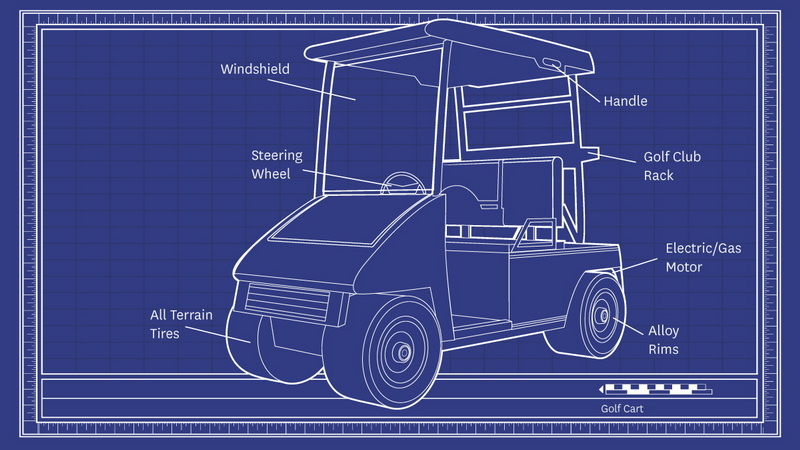Content Menu
● Understanding Electric Golf Carts
● Key Components of Electric Golf Carts
>> Batteries
>> Electric Motor
>> Controller
>> Chassis and Frame
>> Wheels and Tires
>> Braking System
● How Electric Golf Carts Operate
>> Starting the Cart
>> Accelerating
>> Steering
>> Braking
>> Reversing
● Advantages of Electric Golf Carts
>> Environmentally Friendly
>> Quiet Operation
>> Lower Operating Costs
>> Ease of Use
>> Regenerative Braking
● Maintenance Tips for Electric Golf Carts
>> Battery Care
>> Tire Pressure
>> Cleaning
>> Electrical System Check
>> Brake Inspection
● The Future of Electric Golf Carts
>> Smart Technology Integration
>> Increased Popularity in Other Areas
>> Customization Options
● Conclusion
● Frequently Asked Questions
>> 1. What is the average lifespan of an electric golf cart battery?
>> 2. How far can an electric golf cart travel on a single charge?
>> 3. Can electric golf carts be used on public roads?
>> 4. How do I charge an electric golf cart?
>> 5. Are electric golf carts suitable for hilly terrains?
Understanding Electric Golf Carts
Electric golf carts have become a popular mode of transportation on golf courses, in gated communities, and even in some urban areas. These battery-powered vehicles are not only eco-friendly but also provide a convenient way to navigate through various terrains. In this article, we will explore the inner workings of electric golf carts, their components, and how they operate. We will also discuss their advantages, maintenance tips, and the future of electric golf carts.

Key Components of Electric Golf Carts
To understand how electric golf carts work, it is essential to know their main components:
Batteries
The power source for electric golf carts is usually a set of deep-cycle lead-acid batteries or lithium-ion batteries. These batteries are designed to provide a steady amount of power over an extended period, making them ideal for golf carts.
Electric Motor
The electric motor converts electrical energy from the batteries into mechanical energy, which drives the wheels of the cart. Most electric golf carts use either a series or a shunt-wound motor. The choice of motor affects the performance and efficiency of the cart.
Controller
The controller acts as the brain of the golf cart. It regulates the flow of electricity from the batteries to the motor, allowing the driver to control the speed and direction of the cart. Advanced controllers can also provide diagnostic information and improve energy efficiency.
Chassis and Frame
The chassis provides the structural support for the cart, while the frame houses all the components. The design is lightweight yet sturdy, allowing for easy maneuverability. Many modern carts feature aluminum frames, which are both strong and resistant to corrosion.
Wheels and Tires
Electric golf carts typically have low-pressure tires that provide a smooth ride on grass and uneven surfaces. The wheels are designed to handle the weight of the cart and its passengers, ensuring stability and safety during operation.
Braking System
Most electric golf carts are equipped with regenerative braking systems, which help recharge the batteries when the cart slows down. This feature enhances the overall efficiency of the cart and reduces wear on the brake components.

How Electric Golf Carts Operate
The operation of an electric golf cart can be broken down into several steps:
Starting the Cart
To start the cart, the driver turns the key or presses a button, which activates the controller. This action allows electricity to flow from the batteries to the motor.
Accelerating
When the driver presses the accelerator pedal, the controller increases the power sent to the motor. This action causes the motor to spin faster, propelling the cart forward. The acceleration is smooth and can be easily controlled, making it user-friendly.
Steering
Electric golf carts are equipped with a steering mechanism that allows the driver to navigate through tight spaces. The steering system is typically rack-and-pinion, providing precise control. Some models even feature power steering for added ease of use.
Braking
When the driver releases the accelerator or presses the brake pedal, the controller reduces the power to the motor. In regenerative braking systems, the motor acts as a generator, converting kinetic energy back into electrical energy, which is stored in the batteries.
Reversing
Most electric golf carts have a reverse switch that allows the driver to back up. Engaging the reverse switch changes the direction of the motor, enabling the cart to move backward. This feature is essential for maneuvering in tight spaces.
Advantages of Electric Golf Carts
Electric golf carts offer several advantages over their gas-powered counterparts:
Environmentally Friendly
Electric carts produce zero emissions, making them a greener choice for transportation. This is particularly important in areas where air quality is a concern, such as near residential communities or parks.
Quiet Operation
The absence of a combustion engine means electric golf carts operate quietly, allowing for a more peaceful golfing experience. This quiet operation is appreciated by golfers who want to enjoy the sounds of nature while playing.
Lower Operating Costs
Electric carts typically have lower maintenance costs compared to gas-powered carts. They do not require oil changes, and the cost of electricity is generally lower than gasoline. Additionally, the longevity of electric motors can lead to reduced replacement costs over time.
Ease of Use
Electric golf carts are easy to operate, making them accessible for people of all ages. The simple controls and smooth acceleration make them ideal for beginners and experienced drivers alike.
Regenerative Braking
This feature not only enhances efficiency but also extends the life of the brakes. By converting kinetic energy back into electrical energy, regenerative braking helps maintain battery charge and reduces wear on brake components.

Maintenance Tips for Electric Golf Carts
To ensure the longevity and optimal performance of electric golf carts, regular maintenance is essential. Here are some tips:
Battery Care
Regularly check the battery water levels (for lead-acid batteries) and keep the terminals clean. Charge the batteries after each use to maintain their lifespan. It is also advisable to perform equalization charging periodically to balance the battery cells.
Tire Pressure
Check the tire pressure regularly to ensure a smooth ride and better handling. Properly inflated tires also improve battery efficiency. Under-inflated tires can lead to increased rolling resistance, which can drain the battery faster.
Cleaning
Keep the cart clean by washing it regularly. This helps prevent corrosion and keeps the cart looking new. Pay special attention to the battery compartment, as dirt and debris can affect performance.
Electrical System Check
Periodically inspect the wiring and connections for any signs of wear or damage. Ensure that all electrical components are functioning correctly. If you notice any issues, consult a professional for repairs.
Brake Inspection
Regularly check the brakes for wear and tear. If the brakes feel spongy or unresponsive, have them inspected by a professional. Proper brake maintenance is crucial for safety.
The Future of Electric Golf Carts
As technology continues to advance, the future of electric golf carts looks promising. Innovations in battery technology, such as solid-state batteries, may lead to longer ranges and shorter charging times. These advancements could make electric golf carts even more appealing to users.
Smart Technology Integration
The integration of smart technology, such as GPS and connectivity features, could enhance the user experience. Features like navigation systems, speed monitoring, and even remote diagnostics could become standard in future models.
Increased Popularity in Other Areas
Electric golf carts are also becoming more popular in other areas beyond golf courses. They are being used in resorts, airports, and urban environments for short-distance travel. As more people seek sustainable transportation options, the demand for electric golf carts is likely to grow.
Customization Options
Manufacturers are increasingly offering customization options for electric golf carts. Users can choose from various colors, accessories, and features to personalize their carts. This trend is appealing to consumers who want a unique vehicle that reflects their style.
Conclusion
Electric golf carts are an efficient, eco-friendly, and convenient mode of transportation for golfers and others. Understanding how they work, their components, and the benefits they offer can help users appreciate these vehicles even more. With proper maintenance, electric golf carts can provide years of reliable service, making them a valuable addition to any golf course or community.
In summary, electric golf carts operate through a combination of batteries, electric motors, and controllers, providing a quiet and efficient means of transportation. As technology advances, we can expect to see even more improvements in their design and functionality.

Frequently Asked Questions
1. What is the average lifespan of an electric golf cart battery?
The average lifespan of an electric golf cart battery is typically between 4 to 6 years, depending on usage and maintenance. Proper care, such as regular charging and water level checks, can extend battery life.
2. How far can an electric golf cart travel on a single charge?
Most electric golf carts can travel between 20 to 40 miles on a single charge, depending on the battery capacity and terrain. Factors such as weight load and driving conditions can also affect the range.
3. Can electric golf carts be used on public roads?
In many areas, electric golf carts can be used on public roads if they meet specific safety requirements and local regulations. It is essential to check local laws regarding the use of golf carts on public streets.
4. How do I charge an electric golf cart?
To charge an electric golf cart, simply plug the charger into a standard electrical outlet and connect it to the cart's charging port. It is recommended to charge the cart after each use to maintain battery health.
5. Are electric golf carts suitable for hilly terrains?
Yes, electric golf carts can handle hilly terrains, but their performance may vary based on the motor and battery specifications. It is advisable to choose a cart designed for off-road or hilly conditions if you frequently navigate such areas.











































